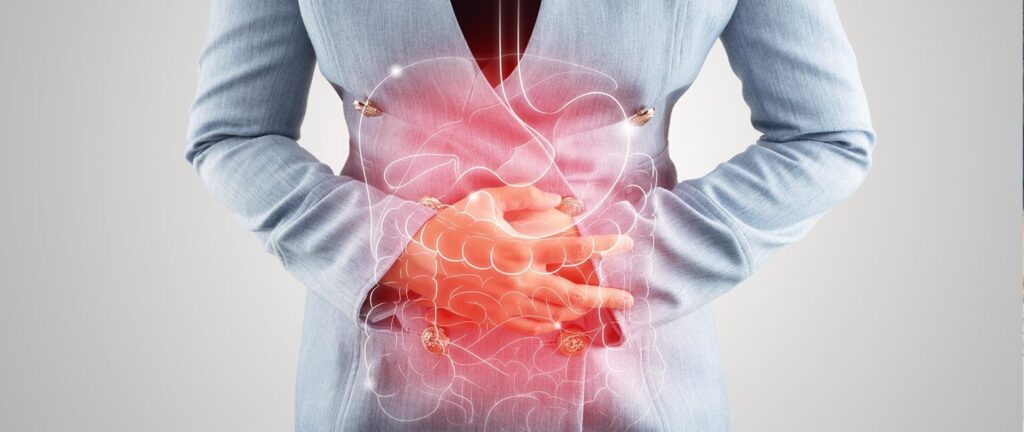Irritable Bowel Syndrome, or IBS, is a common digestive issue that can make daily life uncomfortable, with symptoms like diarrhoea, constipation, bloating, gas, and stomach pain. This condition often develops when the signals between your brain and gut get a bit confused.
Treatment usually means medication or changing what you eat, but dealing with IBS is sometimes still a struggle.
Acupuncture, which has its origins in traditional Chinese medicine, takes quite a different route. It works by gently placing thin needles at precise spots on the body, aiming to stimulate nerves and support overall balance. According to the National Center for Complementary and Integrative Health, there isn’t enough proof yet that acupuncture can fix medical conditions outside of pain relief. Still, some research has shown it might help with IBS symptoms like diarrhoea, pain, and constipation.
Interest in acupuncture as an alternative treatment for IBS has grown thanks in part to these encouraging results. Research points to its possible role in helping the body correct faulty brain-gut communication patterns associated with IBS. However, the findings from studies are mixed, and more evidence is needed before any firm claims can be made. Even so, acupuncture’s role in helping people manage IBS is drawing the curiosity of both professionals and patients looking for extra ways to feel better.
Understanding IBS and its Symptoms
Irritable Bowel Syndrome, or IBS, tends to pop up with a frustrating mix of stomach pain, diarrhoea, constipation, bloating, and a bit too much gas. These symptoms are more than annoying—they can seriously affect your day, and just when you think you’re in the clear, they might catch you off guard again.
IBS sticks around for the long haul, so managing it is a marathon, not a sprint. What’s especially tricky about IBS is that it doesn’t spring just from something going wrong in your gut. The trouble actually starts with the messages sent between your brain and your digestive system. When those signals get crossed, all sorts of uncomfortable symptoms can show up.
Everything from nerves and hormones to the trillions of gut bacteria can play a part. That’s why doctors often need to think about both body and mind in treating IBS, taking a look at how your stress, habits, and even your mood are tangled up with your tummy troubles. Some researchers believe approaches like acupuncture might help by improving those mixed-up brain-gut messages, but the science is still catching up.
The Practice of Acupuncture
Acupuncture comes from thousands of years of Chinese medicine and centres on the idea that a person’s life energy, called “Qi” or “Chi,” needs to flow smoothly throughout the body. The belief is that Qi travels along pathways known as meridians, and if this flow gets interrupted, health problems can crop up. By placing fine needles into precise points, acupuncture aims to bring things back into balance and encourage your body to kickstart its natural repair processes.
People with Irritable Bowel Syndrome (IBS) often find certain acupuncture points helpful. Yin Tang, placed between your eyebrows, and Bai Hui, right at the top of your head, are common choices. Tai Chong on the foot and Zu San Li, just below the kneecap, often come up too.
San Yin Jiao, a spot above the ankle, and Tian Shu, found beside the belly button, can also be used to target tummy troubles. These points are thought to help with IBS symptoms by improving the flow of energy through the digestive system, potentially easing problems like pain and bloating.
While results from studies vary, there are people who say acupuncture gives them relief from their IBS symptoms. The mixed science means acupuncture probably shouldn’t replace other treatments, but it may be worth considering as an extra way to manage IBS.
Benefits of Acupuncture for IBS
Research looking at acupuncture for IBS paints a mixed picture, but it certainly has attracted attention for good reason. Several studies have found acupuncture can bring relief from symptoms like tummy pain, bloating, and diarrhoea. A 2017 study even suggested acupuncture worked better than some typical Western medicines for IBS-related diarrhoea and stomach discomfort. Another trial in 2020 backed this up, with those who had acupuncture experiencing more improvement than people who took medicines such as polyethylene glycol 4000 or pinaverium bromide.
The way acupuncture actually works for IBS isn’t fully understood, which keeps scientists guessing. Some believe it could come down to a strong placebo effect. For example, a 2010 study found both real and “sham” acupuncture helped, as long as someone was getting the treatment. Acupuncturists, however, push back on this, arguing that any needle insertion might help and that it’s not just about hitting the exact right spot.
Even with the debates, acupuncture stands as another option for people hoping to ease IBS symptoms alongside other approaches. Whether its effects are mostly physical, psychological, or a bit of both remains up for debate, and ongoing research will hopefully give clearer answers.
Side Effects and Safety Considerations
Acupuncture is widely thought to be safe if you see a licensed professional who uses single-use, sterilised needles. This greatly lowers the risk of infection and helps to keep the experience as safe as possible.
Serious problems are rare. Most people only notice mild side effects, if any. The most common is a bit of soreness where the needle was placed, which usually fades away within a few hours. Occasionally, there might be light bruising at the spot, but it’s usually no big deal and goes away on its own.
If you have a medical condition like a bleeding disorder such as haemophilia, you’ll want to give extra thought before trying acupuncture. In these cases, talking through the options and any possible risks with your usual doctor before booking a session is the sensible thing to do, just to make sure it’s safe for you.
Comparative Effectiveness of Acupuncture
When researchers put acupuncture head-to-head with standard IBS treatments, the results are a bit of a mixed bag. Take a 2017 study, for example: one group had acupuncture while the other took pinaverium bromide, a typical Western medicine. Those in the acupuncture group had better relief from symptoms like stomach pain, bloating, and odd toilet habits.
Fast forward to 2020, and another study compared acupuncture with both pinaverium bromide and polyethylene glycol 4000. Again, acupuncture seemed to give people more symptom relief than the medicines. That sounds promising, but before you get your hopes too high, a few points are worth mentioning.
Most of these studies included only a small number of people and didn’t follow patients for very long. This means no one can say for sure if acupuncture’s benefits stick around over time. The research also points out another twist: some of the improvement might simply come from people thinking they’re getting help. For instance, in a 2010 trial, both real and placebo acupuncture led to fewer IBS symptoms, hinting that a strong psychological effect could be at play.
So, while early research suggests acupuncture could be helpful alongside standard IBS treatments, bigger and longer studies are needed before doctors can confidently recommend it instead of traditional medicines.
Alternative and Complementary Treatments for IBS
Acupuncture is sometimes paired with other therapies for a better shot at easing IBS symptoms. Cognitive Behavioural Therapy, or CBT, is a popular one. CBT aims to help you reshape those patterns of thinking that might be stirring up gut trouble. By focusing on how your thoughts, feelings, and daily habits connect, CBT can set you up for lasting symptom relief.
Hypnotherapy gets a fair bit of attention as well. In this approach, a therapist guides you into a relaxed and focused state, making it a bit easier to take on positive suggestions. Some studies have found that hypnotherapy can improve IBS symptoms like bloating and tummy pain, possibly by lowering anxiety and stress, which are often tangled up with IBS.
What you eat matters, too. Spotting and steering clear of trigger foods, such as those packed with FODMAPs, can bring some much-needed relief. Upping your fibre intake and drinking more water, while cutting down on things like caffeine and alcohol, can also give your digestion a helping hand.
Lifestyle tweaks are important. Regular movement, better sleep, and ways to dial down stress can all support better gut health. Relaxation techniques, like slow breathing or muscle relaxation exercises, are worth trying for their extra benefits.
Alongside these strategies, learning more about how acupuncture and Chinese medicine may help with IBS symptoms can further expand your toolkit for managing both the physical and mental aspects of IBS.
Considerations for Incorporating Acupuncture into IBS Management

Before adding acupuncture to your IBS routine, make sure to chat with a healthcare professional you trust. Since research on acupuncture’s effectiveness for IBS swings between encouraging and inconclusive, it’s wise to approach this option with a dose of careful thought.
Some people do find relief from symptoms like stomach pain, diarrhoea, or constipation after trying acupuncture. Others don’t feel much difference at all. This unpredictability makes talking things through with your doctor especially important, as they can help you weigh up both scientific evidence and what works for your own situation.
Bear in mind that some positive results in studies may be down to the placebo effect, so it’s best to keep your expectations in check. If you’re thinking about acupuncture, let your doctor help you fold it into your wider IBS treatment plan, keeping your health goals and preferences front and centre.



 Eve Buttenshaw is a wellness expert and contributor to My Healthy Living and Strategies, where she brings her extensive knowledge of mental health, nutrition, and holistic well-being to the forefront. Eve’s passion for empowering individuals to live healthier, more mindful lives is reflected in her thoughtful and informative content.
Eve Buttenshaw is a wellness expert and contributor to My Healthy Living and Strategies, where she brings her extensive knowledge of mental health, nutrition, and holistic well-being to the forefront. Eve’s passion for empowering individuals to live healthier, more mindful lives is reflected in her thoughtful and informative content.